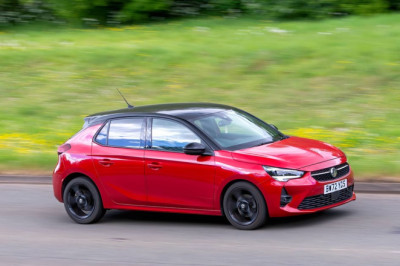
Motorists could be charged based on the distance they drive, with a fee of up to 9p per mile being suggested by experts. Experts at the Resolution Foundation suggested that electric vehicles could be charged based on “both vehicle weight and miles driven” instead of paying a flat car tax Vehicle Excise Duty (VED) fee.
They pointed out that road users who are travelling in heavy vehicles are more likely to contribute to road damage, noise and pollution. The campaigners then claimed that linking the charges to distance “would make the tax fairer” with the system possibly tracking drivers mileage through telematics systems. The suggestion was put forward in the Resolution Foundation's latest ‘Call of Duties’ report, which outlines revenue reform ahead of Rachel Reeves' Autumn Budget.

The Resolution Foundation explained: “EV VED could be reformed without linking to distance travelled, but such a link would make the tax fairer – with the harms above, as well as congestion impact, all correlating with distance.
“A combined weight and distance link would also give the greatest incentive to buy smaller, lighter vehicles to those who drive the most miles – giving the biggest societal benefit.
“Distance could be logged via a mixture of MOTs, self-reporting and ideally telematics (with the latter helping to exclude miles driven outside the UK and perhaps facilitating local per-mile additions in future to tackle the worst congestion).”
There were similar calls for the introduction of a pay per mile system last Autumn but the policy failed to get off the ground. A new charge was formally rejected by the Treasury last September when the DfT confirmed there were “no plans to introduce road pricing” across the UK.

However, in their latest report, experts at the Resolution Foundation suggested that a fee of up to 9p per mile could make sense.
They added: “To give some illustrative figures: Fuel Duty equates to around 6p + VAT per mile for a typical car, so EV VED could be applied at (say) 6p per mile (and no VAT) for a car weighing a typical 1,800kg. The charge for a light, 1,000kg EV could then be proportionally lower at around 3p per mile; and a 2,800kg car would be charged around 9p per mile.
“Given that EVs can be powered for as little as 2p per mile, while a typical weight petrol car might cost 16p per mile, such a new VED system would be a material change in the cost of EV driving, but also see it remain cheaper than the high carbon alternative – with very low driving costs for light EVs especially.”
Express.co.uk has contacted the Treasury for further comment.














